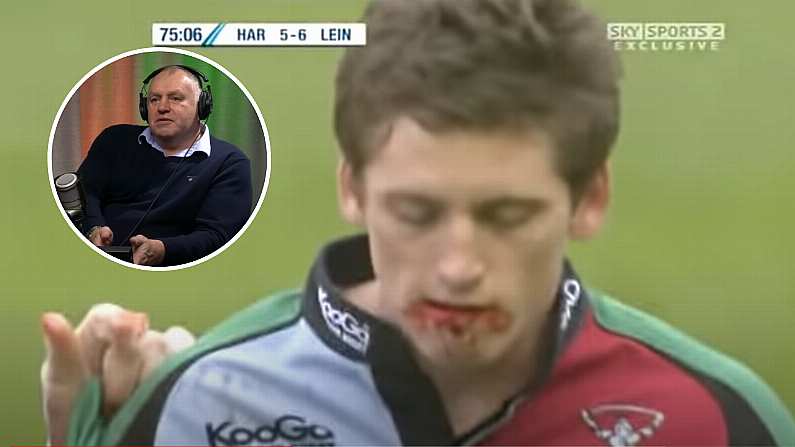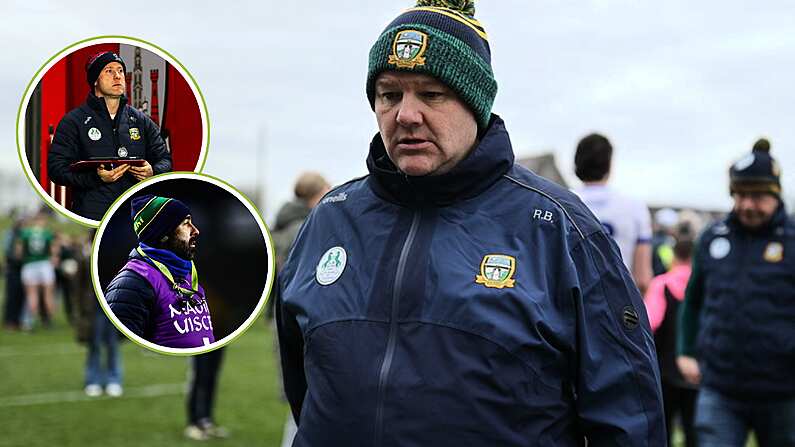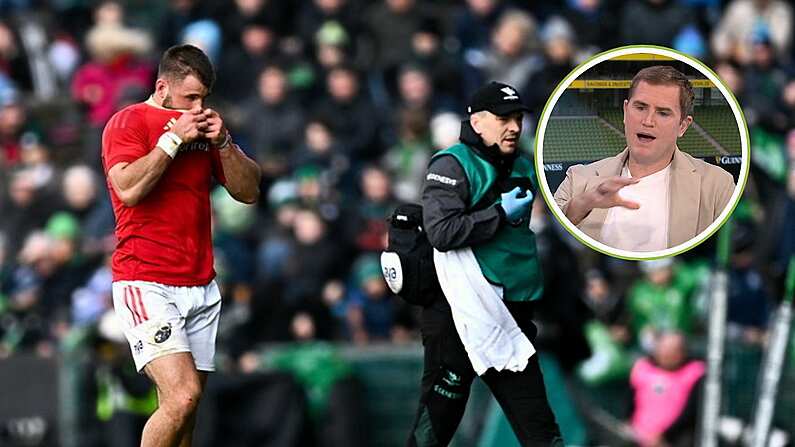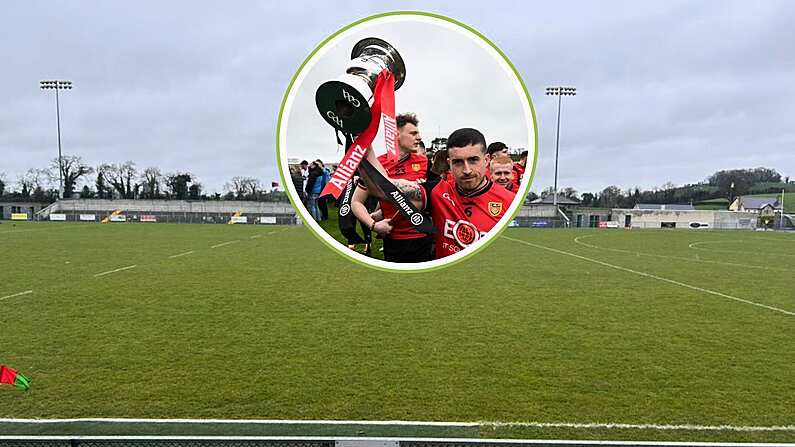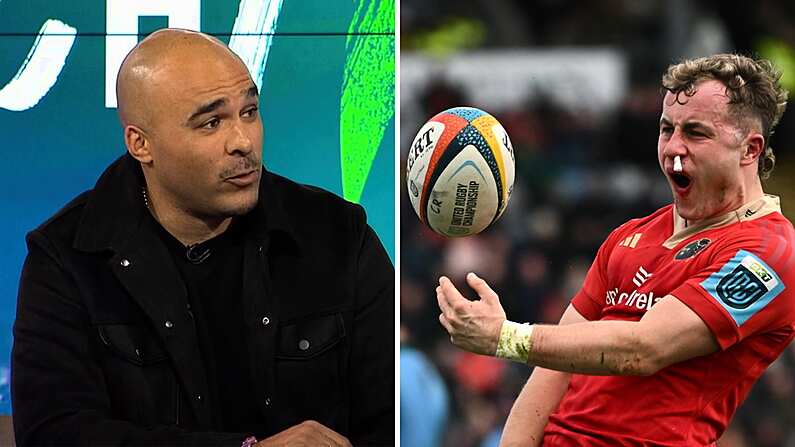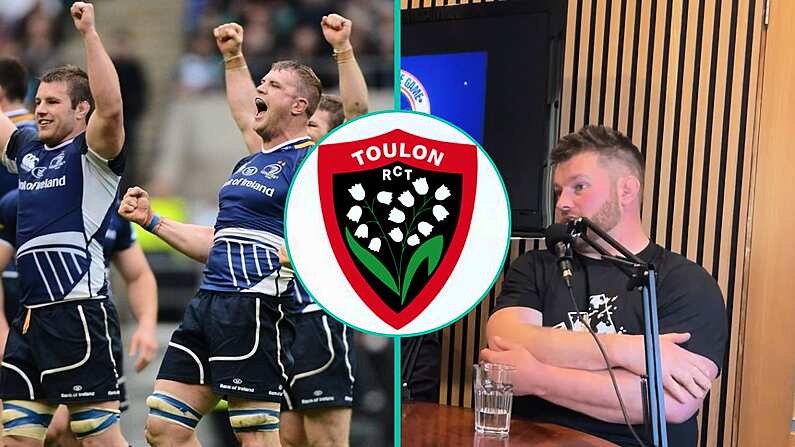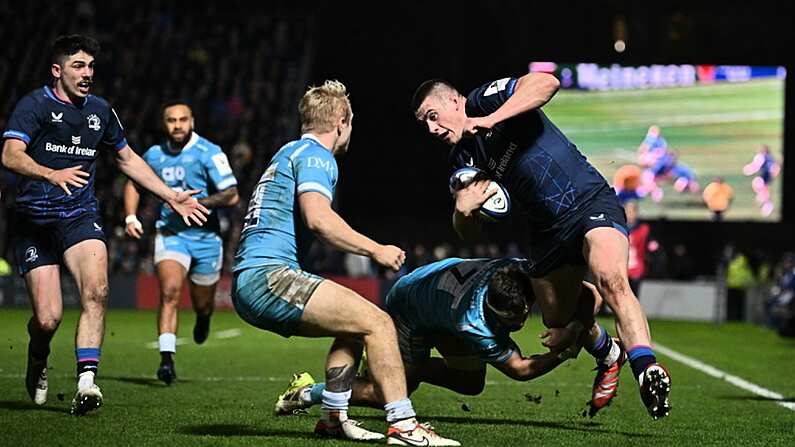Though Leinster's first Heineken Cup win in 2009 is best remembered for the iconic semi-final against Munster at a packed Croke Park, it is hard to forget the drama of the quarter-final, and the infamous "Bloodgate" incident.
Leinster travelled to London to face Harlequins at Twickenham Stoop, in what turned out to be a low-scoring but gripping affair. Leinster would run out 6-5 winners, but the game was to be defined by one of the most unusual and explosive controversies in rugby history.
Early in the second-half, 'Quins out-half Nick Evans was replaced by Chris Malone, before Malone went off with an injury to be replaced by wing Tom Williams. With no designated kicker on the field in the dying moments, Williams came off the field with blood seemingly coming from his mouth, allowing Evans to return to the field to attempt to wrestle victory for Harlequins.
'Quins would ultimately lose by a point - and it transpired that Williams had used a blood capsule to fake the injury, in order to get Evans back on the field of play. The incident resulted in a four-month ban for Williams (reduced from 12 on appeal), and a three-year ban for director of rugby Dean Richards.
"Bloodgate" remains one of rugby's biggest ever controversies, even 14 years on from the dramatic April 2009 afternoon.
This week, Dean Richards appeared on 'The Big Jim Show' podcast with ex-Scotland international Jim Hamilton, and Richards spoke publicly about the incident - calling it the biggest regret of his professional career.
Bloodgate: Harlequins coach Dean Richards speaks out about 2009 controversy
After the "Bloodgate" controversy of 2009, Harlequins director of rugby Dean Richards was found to have orchestrated the team's efforts to sway the Heineken Cup quarter-final in their favour.
Richards was banned from professional rugby for three years for his role in Bloodgate, after the investigation into the incident revealed he had been involved in similar incidents earlier in his career.
Appearing on the 'Big Jim Show' this week, Richards publicly spoke about the infamous incident.
Richards seemed hesitant to speak about the incident, as he noted that anything he said had the potential to impact on others involved. Nonetheless, he did express regret for his role in "Bloodgate", and said that he would never consider repeating his actions if found in the same scenario again:
You probably won't get anything out of me. The only thing I'll say is it was a bad idea, it was the wrong idea. When your gut and instinct says "don't do it," you should't have done it.
Whichever way you look at it, it was the perfect storm which just erupted into...almost an atomic bomb of fury. It should never have happened. I should have just said 'no, it's not going to happen.'
You have a choice whether to do it or not. We as a team and I sort of sanctioned it and allowed it to happen, and was part of it. I shouldn't have done it and your gut instinct is to say no. You should always follow your gut and instinct in situations like that. That was probably the biggest regret of my coaching career, how that unfolded.
It's a learning curve, and you learn from it. Would I do it again? Definitely not.
An infamous element of "Bloodgate" saw Harlequins club doctor Wendy Chapman cut Tom Williams' lip after he had left the field of play, in an effort to make the injury look legitimate. Richards said on the 'Big Jim Show' that the cover-up after the quarter-final was "probably the worst thing" for him. Chapman was ultimately not punished for her role in the incident.
Richards' three years out from rugby leave a major hole in the middle of his coaching career - the only blank years between 1998 and the present day. The Englishman said that the ban from rugby forced him to learn how to operate in a different way, and that it was perhaps an element of "Bloodgate" he looked back on as a positive.
Richards went on to make a rather unexpected point about the public outcry surrounding "Bloodgate," saying that he could not fathom the level of media attention the incident received in the UK. He referenced the release of Abdelbaset al-Megrahi, imprisoned for the bombing of Pan Am Flight 103 over the UK in the 1980s, as an example of a story that was drowned out by "Bloodgate":
It's fascinating, first of all, the furore surrounding Bloodgate. On the day that I got sentenced, it was the same day that the guy who'd allegedly blown up the Lockerbie bomb was released from jail. I got the front page and inside page of every daily, and this guy was probably three or four pages in, and the significance of one versus the other...one is a sporting thing, one is people's lives.
It goes to show what a sporting nation we still are, and the importance to us.
"Bloodgate" will always be remembered as one of rugby's great controversies, and Leinster can count themselves fortunate that they did not fall to defeat after the antics of Harlequins in 2009.

